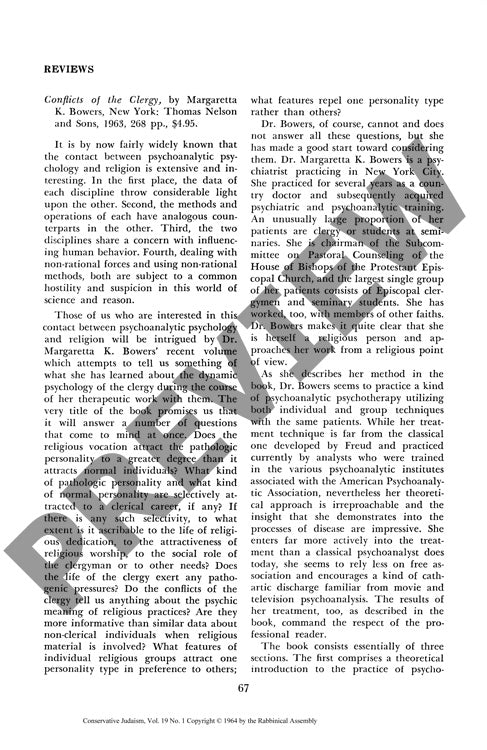Reviews
Couldn't load pickup availability
Religious clergy occupy a uniquely isolated psychological position in society - simultaneously connected to and separated from their communities through their sacred role. Dr. Margaretta K. Bowers' groundbreaking clinical investigation of thirteen clergymen, seminary students, and theologians reveals distinctive psychological patterns and conflicts emerging from this complex social positioning. Through fifteen years of psychoanalytic psychotherapy cases, primarily focused on Episcopal clergy and seminarians, Bowers identified recurring psychological challenges including masochism, depression, chronic anger, homosexuality, and compulsive rescuing behaviors. Her combined individual and group therapeutic approach, which integrates psychoanalytic theory with religious perspectives, uncovered compelling connections between childhood experiences of death and the calling to religious vocation. The research particularly illuminates how Holy Communion serves as a focal point for pathological projection, drawing on primitive unconscious impulses. Results demonstrate that psychoanalytic therapy can effectively address clergy members' neurotic disorders while preserving and strengthening their religious function. These findings underscore the critical importance of thoroughly addressing religious conflicts in psychotherapy and expanding access to quality mental health services for religious professionals, whose psychological well-being directly impacts their communities.

More Information
-
Physical Description
-
Publication Information
Published 1964
ISBN
-
Publication Credits

